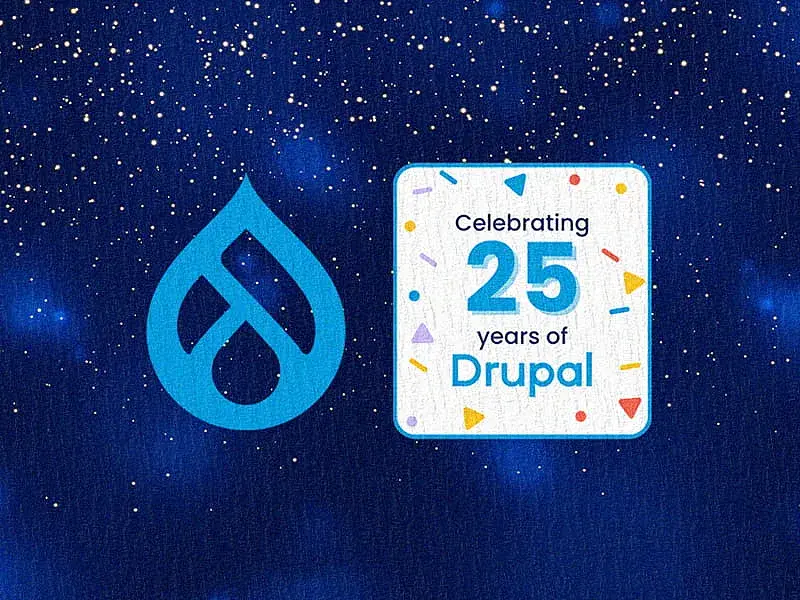One of the most popular and powerful Content Management Systems (CMS), Drupal has proven to be a perfect fit for businesses at all scale levels, from very small start-ups to very large organizations. It is imperative that you take calculated risks in order to create successful businesses. You minimize your risks when you choose Drupal as your CMS framework since it is one of the most trustworthy and reliable frameworks with high flexibility.
Drupal has been adopted by many large organizations, including Tesla, GE, Whole Foods, NASA, University of Oxford, NBC, NASDAQ, Harvard University, Universal Music Group, and many others. In light of the fact these big names trust Drupal for their web content and functions, let's see why Drupal can be a good fit for your business.

Cost effective
An open-source framework has its perks and one of them is free downloads. Drupal is distributed under the GNU public license, so anyone can download, use, and extend it for free. It comes with no license fees. No matter what your company size is - cutting costs is always a good thing, right? Next step, hire an experienced Drupal development team to build and deploy your dream website. By reducing software licensing costs, you will be able to provide a more opulent online experience to your users.
Grows with your business
You will eventually need to scale your website to accommodate the needs of your medium, large or small businesses as they become more successful. Websites built with Drupal can grow along with your company. High traffic websites like Tesla, CNBC, NBA, TripAdvisor, Pinterest Newsroom, New York State and more trust Drupal to deliver powerful performances even with surging traffic.
According to W3Techs’ market research, Drupal still ranks the highest for being the CMS used by high traffic sites.
We can now turn our attention to Drupal's performance and functionality scalability. Today, there are over 40,000 ready-to-use modules available in Drupal to extend the functionality and features of your website. Modules like Forums, blogs, slideshow galleries, etc. can easily be added and integrated with external APIs to expand your website's functionality. Drupal’s extensive templating engine and the 2500+ available themes can help you meet your UX Design goals that will reflect your brand image.
Security goals
Web security is a significant part of a business plan, however, many companies tend to overlook this crucial issue until something goes wrong. Of course, securing your website is not a one-time task. It is an ongoing process which needs continuous vigilance, updates and maintenance. Drupal is known for the security it offers and is the most secure CMS available today. The security team is always actively protecting the software from harmful attacks and releases regular patches, bug fixes and updates. There are tons of modules and out-of-the-box features that can further help build a secure website like Password protection, Two factor authentication, Content access, Captcha, Security kit and more. No wonder Drupal is the most preferred CMS for over 150+ countries government and intergovernmental websites who deal with highly sensitive data.
Optimize for search engines
Search Engine Optimization is key to every organization’s visibility and is a crucial element for its online marketing strategy. Websites powered by Drupal are proven to get more traffic than any other CMS. How? Drupal offers a bunch of modules and features that are specifically designed to boost your SEO ranking. For example, SEO optimized URLs make pages easily index-able for search engines. Drupal’s taxonomy features when combined with its content editing modules like CCK and Views module, ensures a strong search engine optimized website. With a seamless integration with Google analytics, you can keep a track of your clicks and analytics that can in-turn help you optimize your Drupal website better. Modules like SEO Checklist can help you better organize and maintain your SEO activities.
Flexible Integrations
Along with a powerful website, businesses leverage more than one third-party tool for business process automation. For example, Mailchimp for sending out newsletter and email campaigns, different CRMs to track customer relations and interactions, Learning Management Systems (LMS) tools to handle all learning aspects, Marketo for marketing automation, and the list can go on. Drupal gives you the flexibility to integrate with any third-party application of your choice with the help of integration modules and APIs. Since Drupal’s adoption of the API-first approach, exchanging data with external APIs is now easy and quick.
Undoubtedly there are many more reasons why Drupal is a great choice of CMS for businesses but the ones mentioned here are the most significant. Drupal is considered as the Ferrari of all open-source CMS’s which is highly scalable, flexible and robust and can be instrumental in the growth of your business. For a knowledgeable Drupal developer, sky's the limit really as there is so much one can do with an open-source CMS as flexible as Drupal. Specbee is a Drupal Development Company with highly experienced Acquia certified developers who, along with the power of Drupal, can build highly modular and scalable web solutions for you. Talk to us to find out how we can help.







